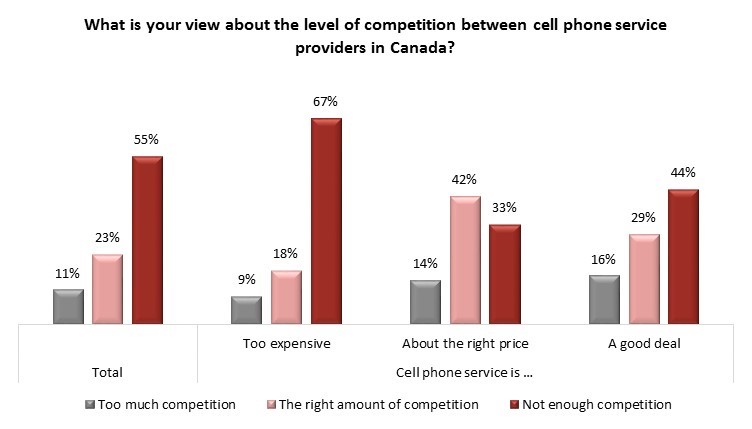DESIBUZZCanada
Events Listings
Dummy Post

International Day Of Yoga To Be Virtually Celebrated Saturday At 4pm

CANCELLED: Coronavirus Fears Kills Surrey’s Vaisakhi Day Parade

ADVERTISE WITH US: DESIBUZZCanada Is The Most Read South Asian Publication Online

SURREY LIBRARIES: Get Technology Help At Surrey Libraries

WALLY OPPAL: Surrey Police Transition Update On Feb. 26

GONE ARE THE DAYS - Feature Documentary Trailer

Technology Help At Surrey Libraries

Birding Walks

Plea Poetry/short Story : Youth Contest

International Folk Dancing Drop-in Sessions
Canadians Call For A More Competitive, Less Expensive Cell Phone Industry, Poll Says 2016
- April 14, 2016

Few aware of recent CRTC decision on Mobile Virtual Networks!

Angus Reid Institute poll found that fewer than one-in-ten Canadians believe they’re getting “a good deal” on their wireless service, according to a new public opinion poll from the Angus Reid Institute. More than half say there is a dearth of competition in the industry.
TORONTO -Canadians’ collective frustrations with their cell phone service is legendary. So much so that entire businesses have been set up to call customer service lines on behalf of disgruntled users and argue for better rates.
There is little surprise then, Angus Reid Institute that fewer than one-in-ten Canadians believe they’re getting “a good deal” on their wireless service, according to a new public opinion poll from the Angus Reid Institute. More than half say there is a dearth of competition in the industry.

More than three-in-five Canadians (61%) say they “haven’t really heard anything about” a recent decision by the Canadian Radio Telecommunications Commission (CRTC) to not require large cell phone companies to enter agreements with Mobile Virtual Network Operators (MVNOs) – a move the MVNOs say stifles competition
Awareness of the decision drives opinion on it. Those who have been following the issue in the news mostly believe the CRTC made the wrong decision, while those who haven’t been following are unsure. Overall, only one-in-seven (14%) say the CRTC’s decision was the right one
Six-in-ten Canadians (61%) say their cell phone plan is “too expensive,” while just 8 per cent say it’s “a good deal”
Canadians have many gripes about their mobile phone service – nearly 10,000 of them in 2014-15, according to The Commissioner for Complaints for Telecommunications Services, an industry-funded non-profit organization that fields complaints about communications companies.
Chief among Canadians’ concerns? Prices that are consistently among the highest in the world. As previously mentioned, fewer than one-in-ten (8%) say they’re getting “a good deal” on their wireless service. More than seven times that many (61%) say their cell phone plans are “too expensive.”
Alberta residents are the most inclined to say they’re the victims of high prices, with nearly three-in-four (72%) identifying their plans as “too expensive.” Ontario, meanwhile, has the largest population of people who feel like they’re getting a good deal, though this total is only slightly more than one-in-ten (12%, see comprehensive tables for more detail).
Unsurprisingly, those who say their service is too costly also take a dim view of the amount of competition between companies in the telecommunications sector.
A narrow majority of Canadians (55%) say there is “not enough competition” in the industry. This group is led by two-in-three (67%) of those who feel they’re paying too much for their phones:
Few aware of CRTC decision
Despite their apparent hunger for increased competition in the cell phone market, three-in-five Canadians (61%) say they haven’t seen or heard anything about a recent CRTC decision that advocates say eliminates one possible avenue for making the industry more competitive.
The decision in question concerns “Mobile Virtual Network Operators” (MVNOs) – small cell phone service providers that lease network capacity from larger companies and then sell that to their customers, often at a lower price than the big companies.
The CRTC denied an appeal from a group of MVNOs that would have required the country’s largest wireless carriers to enter into these lease agreements, arguing that such a mandate would essentially punish the big companies for their investments in network infrastructure and discourage them from maintaining or expanding it.
Asked how closely they’ve been following this story, most Canadians say they aren’t paying any attention at all:
For all their frustration, however, relatively few Canadians are aware of a recent regulatory decision that some say will make it more difficult to create new mobile service competitors to the “big three” of Bell, Rogers, and Telus.











